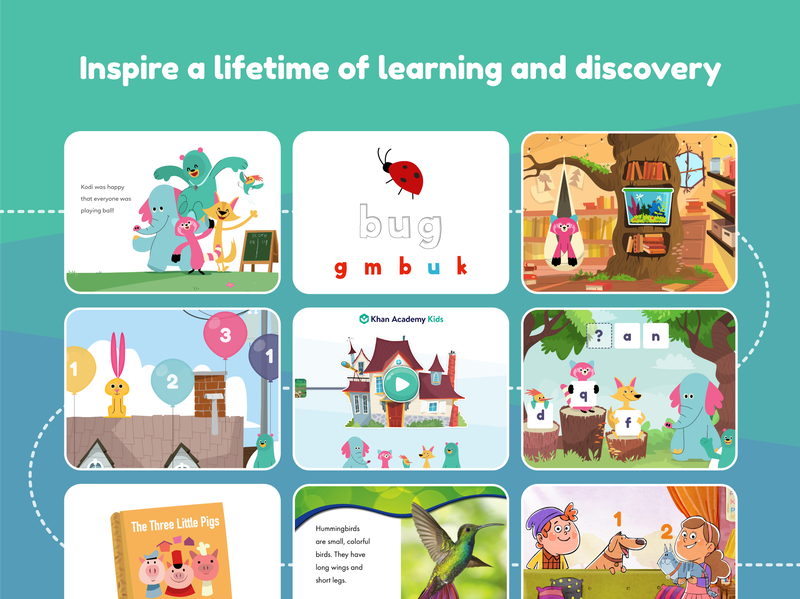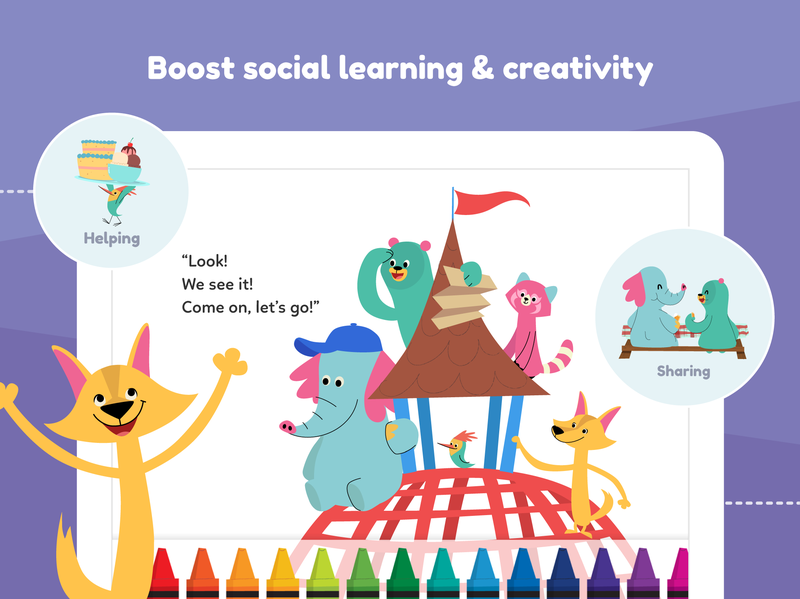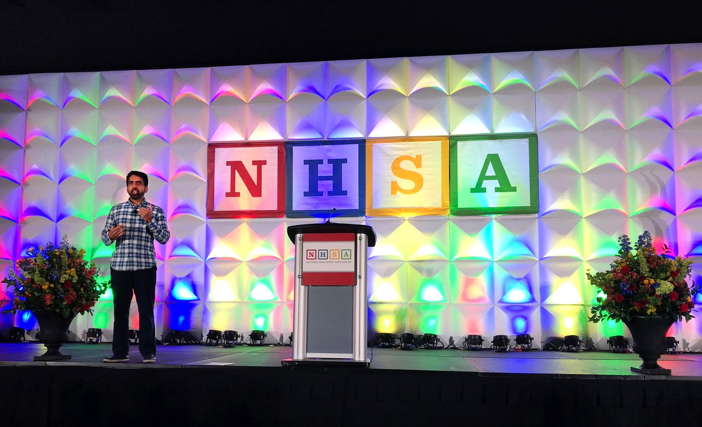How Khan Academy Kids is Helping All Children Prepare for Kindergarten
Today, Khan Academy announces the launch of Khan Academy Kids — the first early learning platform that is both personalized and focused on the whole child — and we could not be more excited for them as a respected leader in children’s education as well as one of Omidyar Network’s investees who we initially supported to expand into early learning.
Khan Academy Kids, targeting two- to five-year-old children, was developed in partnership with leading educators at Stanford University and the National Head Start Association, and created by Caroline Hu Flexer and her team who built the award-winning Duck Duck Moose apps. What’s more is Khan Academy Kids will be distributed to children, families, and educators for free.
Numerous studies have demonstrated the benefits of early childhood interventions and have shown that kindergarten readiness is a leading indicator of future success. Yet, too many children do not have access to pre-kindergarten or only have access to low quality or unaffordable programs and solutions. As a result, fewer than half of low-income children are ready for school at age five in the United States.
While we strongly adhere to the American Association of Pediatrics’ recommendations regarding young children’s media usage, one way to help more children reach these important early learning milestones may be to leverage digital experiences toward quality learning. Of US homes with 0 to 8-year-olds, 98 percent have a mobile device, and 74 percent of low income families (<$30,000/year) have high-speed internet access. Recent research by the University of Washington’s Information School shows that thoughtfully designed digital apps that intentionally support parent-child interactions facilitate the same type of child play and development as analog solutions. However, for so many parents and educators, the digital experience and choice of quality content is confusing. According to the Educational App Store, there are now over 500,000 apps marketed as “educational”, the majority targeting young children, with minimal quality learning experiences.
The Khan Academy Kids platform is adaptive to children’s development and lets the child navigate through the platform at their own pace.
That is why we are a proud supporter of Khan Academy Kids, who bring a simplified and high quality experience for parents, caregivers, and educators. Khan Academy Kids provides access to one platform, where each child can learn across subjects, including early literacy, math, as well as creativity, critical thinking and other socio-emotional skills at a developmentally appropriate level and at their own pace. Khan Academy Kids also leverages the distribution, brand, and partnerships of Khan Academy for ease of search, access, and quality. And it’s free!
Said Caroline Hu Flexer, Co-founder of Duck Duck Moose: “We’re excited to introduce Khan Academy Kids for free so it can be accessible to children all over the world, regardless of their financial resources.”
Here are three reasons why Khan Academy Kids has the potential to make a meaningful impact on Kindergarten readiness:
1. Personalized and active learning.
The Khan Academy Kids platform is adaptive to children’s development and lets the child navigate through the platform at their own pace. Kids improve skills through a customized series of interactive activities, books, videos, and creative lessons. Original, interactive videos and books keep young kids engaged through active self-directed learning.

That is why we are a proud supporter of Khan Academy Kids, who bring a simplified and high quality experience for parents, caregivers, and educators. Khan Academy Kids provides access to one platform, where each child can learn across subjects, including early literacy, math, as well as creativity, critical thinking and other socio-emotional skills at a developmentally appropriate level and at their own pace. Khan Academy Kids also leverages the distribution, brand, and partnerships of Khan Academy for ease of search, access, and quality. And it’s free!
Said Caroline Hu Flexer, Co-founder of Duck Duck Moose: “We’re excited to introduce Khan Academy Kids for free so it can be accessible to children all over the world, regardless of their financial resources.”
Here are three reasons why Khan Academy Kids has the potential to make a meaningful impact on Kindergarten readiness:
1. Personalized and active learning.
The Khan Academy Kids platform is adaptive to children’s development and lets the child navigate through the platform at their own pace. Kids improve skills through a customized series of interactive activities, books, videos, and creative lessons. Original, interactive videos and books keep young kids engaged through active self-directed learning.

2. Comprehensive curriculum and holistic approach.
Khan Academy Kids’ holistic approach engages students in subjects ranging from literacy to math while encouraging creativity and building social-emotional skills. Key foundational skills and competencies are aligned with Kindergarten and Head Start child development standards.
3. Free for all, increasing accessibility for low-income.
The needs of low-income families were central to the building of Khan Academy Kids. Not only is the app designed for everyone, it focuses specifically on reaching low-income children and families in the US and eventually worldwide. One example of this focus was ensuring the app works with intermittent or low quality Wi-Fi access, as well as a range of mobile devices.

As a pioneer of personalized learning, Khan Academy has impacted millions of learners globally since its 2004 founding by visionary Sal Khan. Learners who study at Khan Academy achieve greater-than-expected learning outcomes. Omidyar Network was honored in 2016 to philanthropically support Khan Academy’s expansion to pre-school learning through the acquisition of Duck Duck Moose’s award-winning early learning apps. Duck Duck Moose’s apps have since then been downloaded more than 40 million times — an incredible reach.
Khan Academy Kids builds on the success of Khan Academy and Duck Duck Moose and has the potential to positively impact millions of young learners and increase access to foundational skills and competencies for kindergarten and beyond.
Learn more at https://www.khanacademy.org/kids.